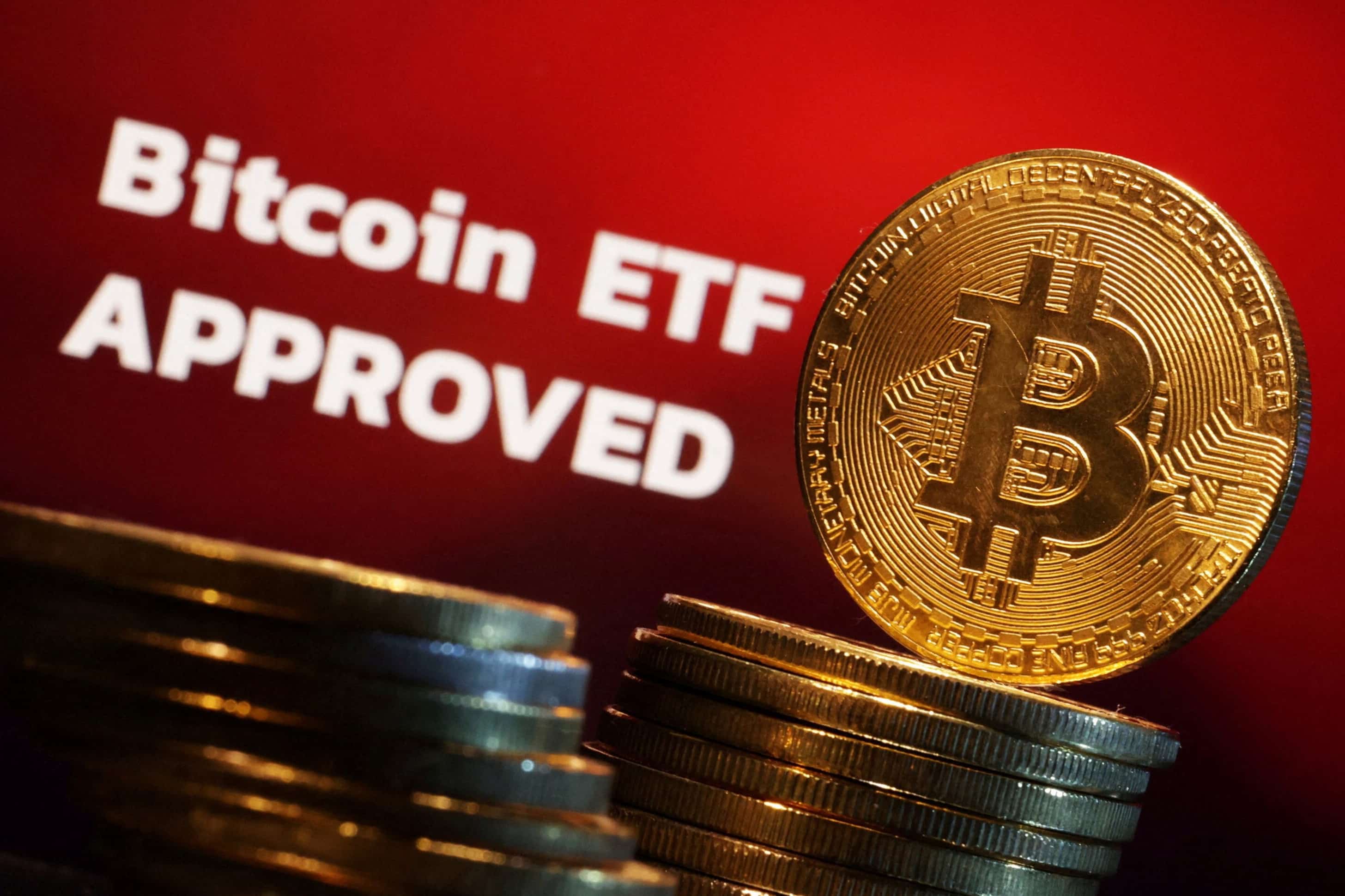
Bitcoin exchange-traded funds (ETFs) have been a hot topic in the financial world, sparking both excitement and debate. As the cryptocurrency market continues to evolve, the potential for Bitcoin ETFs to provide a more accessible and regulated investment avenue has garnered significant attention. In this article, we will delve into six compelling facts about Bitcoin ETFs, shedding light on their significance, potential impact, and the broader implications for investors and the cryptocurrency market. Whether you're a seasoned investor or simply curious about the latest developments in the financial landscape, understanding the intricacies of Bitcoin ETFs is crucial. So, let's embark on a journey to uncover the key aspects of Bitcoin ETFs and explore their implications in the ever-evolving realm of digital assets.
Key Takeaways:
- Bitcoin ETFs make it easier for regular people to invest in cryptocurrency without actually owning it. This could attract more investors and change the way we think about money.
- The approval of Bitcoin ETFs could bring big money into the crypto market, but it also makes the market more unpredictable. It’s like a rollercoaster ride for investors!
Bitcoin ETFs: A Game-Changer in the Crypto World
Bitcoin ETFs, or exchange-traded funds, have been a hot topic in the financial and cryptocurrency realms. Here are six key facts about Bitcoin ETFs that shed light on their significance and impact.
Bitcoin ETFs: A New Investment Avenue
Bitcoin ETFs provide investors with a convenient way to gain exposure to the world of cryptocurrencies without directly owning the digital assets. These funds are traded on traditional stock exchanges, making it easier for mainstream investors to participate in the crypto market.
Bitcoin ETFs offer a diversified portfolio of digital currencies, allowing investors to mitigate the risks associated with individual cryptocurrency investments. This accessibility and diversification have the potential to attract a broader range of investors to the crypto space.
Regulatory Hurdles and Approvals
The journey towards launching Bitcoin ETFs has been riddled with regulatory challenges. The Securities and Exchange Commission (SEC) plays a pivotal role in approving Bitcoin ETF proposals, scrutinizing factors such as market manipulation, liquidity, and custody solutions.
The SEC's cautious approach aims to protect investors and maintain market integrity. As a result, the approval of Bitcoin ETFs is contingent upon meeting stringent regulatory standards, which can significantly impact the timeline for their introduction.
Institutional Adoption and Market Impact
The introduction of Bitcoin ETFs is poised to fuel institutional adoption of cryptocurrencies. Institutional investors, including hedge funds and asset managers, are increasingly expressing interest in incorporating digital assets into their portfolios through regulated investment vehicles like ETFs.
The approval of Bitcoin ETFs could potentially unleash a wave of capital into the crypto market, driving liquidity and price discovery. This influx of institutional funds has the potential to reshape the dynamics of the cryptocurrency landscape, amplifying its mainstream acceptance and market influence.
Market Volatility and Investor Sentiment
The anticipation surrounding Bitcoin ETFs has been accompanied by heightened market volatility and fluctuating investor sentiment. Speculation regarding the approval or rejection of ETF proposals often triggers significant price movements in the cryptocurrency markets.
The prospect of Bitcoin ETFs has the power to sway investor confidence, influencing trading patterns and market trends. As a result, the regulatory developments pertaining to Bitcoin ETFs are closely monitored by market participants, impacting the overall sentiment and stability of the crypto market.
Evolving Regulatory Landscape and Global Implications
The emergence of Bitcoin ETFs reflects the evolving regulatory landscape surrounding cryptocurrencies on a global scale. Regulatory decisions regarding Bitcoin ETFs in major financial markets can have far-reaching implications for the broader cryptocurrency ecosystem.
The approval of Bitcoin ETFs in influential financial hubs could set a precedent for regulatory frameworks in other jurisdictions, potentially shaping the future of cryptocurrency investments worldwide. As such, the regulatory developments pertaining to Bitcoin ETFs hold significant implications for the global adoption and integration of digital assets into traditional investment avenues.
In conclusion, Bitcoin ETFs represent a pivotal development in the intersection of traditional finance and the cryptocurrency space. As regulatory landscapes continue to evolve, the potential approval of Bitcoin ETFs stands to redefine the accessibility, legitimacy, and market dynamics of cryptocurrencies, ushering in a new era of investment opportunities and financial innovation.
Conclusion
In conclusion, the introduction of a Bitcoin ETF has the potential to revolutionize the cryptocurrency market by providing a more accessible and regulated investment vehicle for both institutional and retail investors. The approval of a Bitcoin ETF could lead to increased mainstream adoption of cryptocurrencies, as well as greater price stability and liquidity in the market. However, it's important to consider the potential risks and regulatory challenges associated with Bitcoin ETFs. As the cryptocurrency landscape continues to evolve, the launch of a Bitcoin ETF could mark a significant milestone in the integration of digital assets into traditional financial systems.
FAQs
What is a Bitcoin ETF?A Bitcoin ETF, or exchange-traded fund, is a type of investment fund that tracks the price of Bitcoin and allows investors to trade shares on traditional stock exchanges.
How does a Bitcoin ETF work?A Bitcoin ETF works by holding Bitcoin as the underlying asset and issuing shares that represent ownership of the cryptocurrency. This allows investors to gain exposure to Bitcoin's price movements without needing to directly purchase and store the digital currency.
Was this page helpful?
Our commitment to delivering trustworthy and engaging content is at the heart of what we do. Each fact on our site is contributed by real users like you, bringing a wealth of diverse insights and information. To ensure the highest standards of accuracy and reliability, our dedicated editors meticulously review each submission. This process guarantees that the facts we share are not only fascinating but also credible. Trust in our commitment to quality and authenticity as you explore and learn with us.
